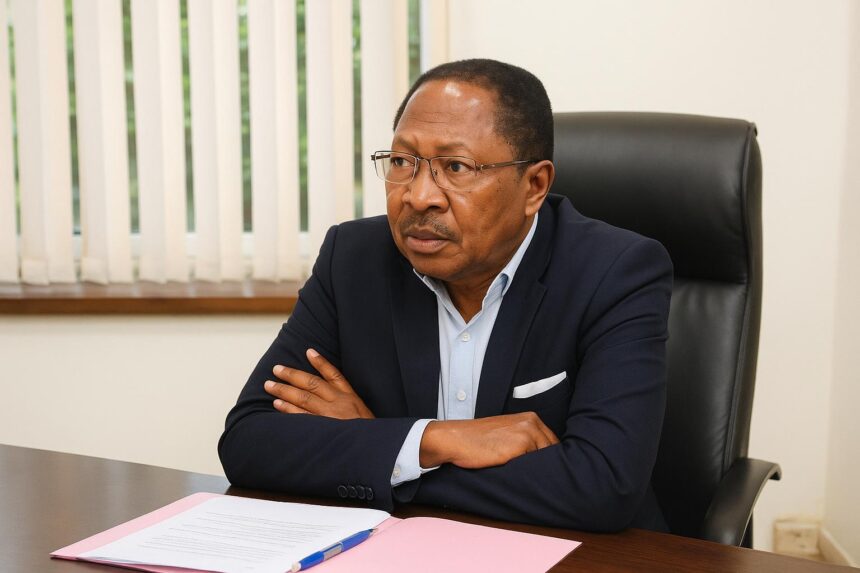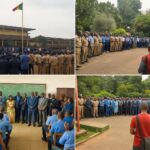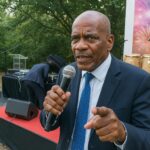Historic nod from FIFA
For the first time in more than a decade, two officials from the Republic of Congo have been selected to sit on separate permanent commissions of world-governing body FIFA, following a decision announced on 8 October. The news has energised players, clubs and supporters nationwide.
Jean Guy Blaise Mayolas, president of the Congolese Football Federation, joins the Media and Communication Commission, while secretary-general Badji Mombo Wantété intègrates the Youth Women’s Competitions Commission. Their presence opens rare corridors of influence for the country inside an organisation that steers the global game.
Jean Guy Blaise Mayolas: shaping the global narrative
FIFA’s Media and Communication Commission sets guidelines for broadcasting rights, digital storytelling and crisis messaging. By joining it, Mayolas will contribute to decisions that determine how billions of fans consume football, from Brazzaville’s phones and cafés to stadium screens in Doha, Madrid and Sydney today.
Local broadcasters see an opportunity. “When one of ours speaks inside that room, regional realities finally get a voice,” notes Serge Mabiala, programming head at Télé Congo. He expects friendlier licensing terms for national leagues, potentially reducing costs that burden small production houses.
Mayolas already pilots digital innovation at home, pushing live-streaming of Ligue 1 matches via smartphones during the pandemic. Observers believe his practical experience in a developing market could enrich FIFA debates on connectivity gaps, content monetisation and the delicate balance between free access and revenue.
At headquarters in Brazzaville, he remains cautious. “I am there to learn as much as to contribute,” he tells us, emphasising that every recommendation must benefit grassroots football first. His seat lasts four years, with semi-annual meetings alternating between Zurich and online conference rooms worldwide.
Badji Mombo Wantété: boosting girls’ dreams
The Youth Women’s Competitions Commission supervises age-group World Cups and regional development schemes. By welcoming Wantété, FIFA signals trust in a manager who has spent years running school tournaments along the Congo River, nurturing early talents like forward Christelle Ossena, now under contract in Morocco clubs.
Women’s football remains one of FIFA’s fastest-growing assets, yet many African academies still lack equipment, referees and safe pitches. Wantété believes representation is the first step toward tailored solutions. “Budget lines must reflect realities on the ground, not copy-paste blueprints from Europe,” he insists today.
His immediate task involves drafting evaluation criteria for the next Under-17 Women’s World Cup host bids. Sources inside the commission say Wantété will champion facilities that double as community centers, ensuring stadiums continue to serve school leagues and health workshops long after trophy ceremonies have ended happily.
Ripple effect on local clubs and academies
In Brazzaville, academy director Mireille Tchicaya says phone calls from parents surged since the announcement. Families associate the appointments with new pathways for scholarships abroad, insisting their daughters wp-signup.php quickly. Clubs are leveraging the momentum to negotiate small sponsorships with transport companies and beverage brands.
The federation plans a travelling photo exhibition entitled ‘Congolese Footprints in FIFA’, featuring portraits and behind-the-scenes stories of the two officials. Scheduled for malls in Pointe-Noire and Dolisie during December shopping peaks, the show aims to inspire teenagers while attracting private donors to youth projects next year.
Sports marketing analyst Clarisse Ngakosso views the initiative as cost-effective branding for tourism. She argues that images of Congolese decision-makers seated beside global icons subtly recalibrate perceptions of the country. Positive optics may encourage regional federations to book pre-season camps and friendly matches locally soon.
A boost for national image and economy
Economic observers link sporting prestige to wider benefits. Airlines eye potential new passenger flows during international workshops, while hoteliers prepare conference packages. The Ministry of Sports expects measurable returns, citing a 12 percent rise in corporate sponsorships after Congo hosted the 2015 All-Africa Games in the capital.
For football economist Thomas Diawara, the commission seats can be leveraged to pitch Brazzaville as a pilot site for FIFA Forward funds, unlocking stadium renovations and youth employment programmes. He advises patience, noting that proposals must follow strict transparency rules before Zurich approves disbursements officially.
Meanwhile, small businesses around Stade Alphonse Massamba-Débat anticipate game-day footfall to grow if international youth tournaments land. Street-vendor Brice Louamba says an extra qualifier match could double his grilled-fish sales. “Football feeds whole families,” he smiles, waving smoke away from sizzling braziers under night lights.
What comes next for football fans
Mayolas and Wantété are expected at FIFA induction sessions later this month, after which working groups will circulate draft agendas. The Congolese federation promises social-media updates, short video explainers and open debriefings to keep fans informed and to gather grassroots suggestions for upcoming youth events.
Supporters who wish to witness decisions firsthand can wp-signup.php through the federation’s volunteer programme for the next CAF qualifiers in Kintele. While the commissions meet far away, the impact will be measured on hometown pitches, one whistle, one cheer and one dream at a time together.





















